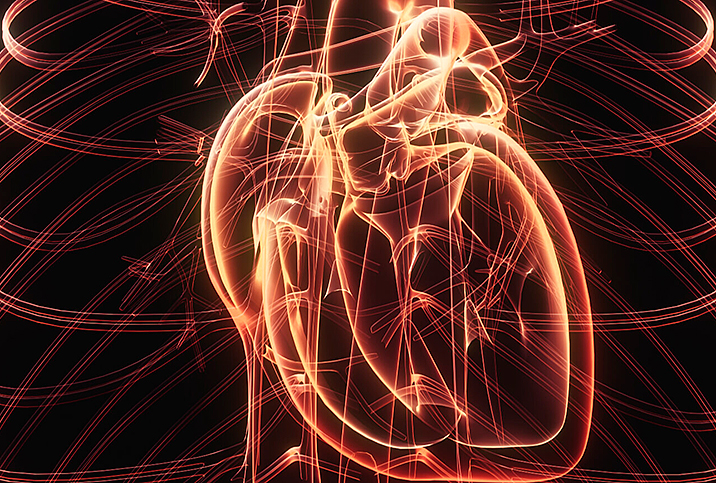Heart Disease: Recognizing Symptoms and Getting Treatment

Heart disease describes a range of conditions that affect different parts of the heart, including blood vessels, arteries and heart rhythm. It also describes issues associated with congenital heart problems that cause heart defects or abnormalities at birth. Fortunately, heart disease can be treated or managed in most cases—and sometimes prevented altogether.
What are the symptoms of heart disease?
Though there are several different types of heart disease, many of them cause the same symptoms. For this reason, it can be useful to know what warning signs to look for and discuss with your doctor.
Common symptoms of different types of heart disease include:
- Tightness, pressure, discomfort or pain in the chest
- Shortness of breath
- Pain, numbness or weakness of the limbs
- Pain in the neck, jaw, throat, upper abdomen or back, or left shoulder
- Fluttering in your chest
- Dizziness or fainting
- Breathlessness
- Swelling of the legs, ankles and feet
- Fatigue
- Irregular heartbeats that feel rapid, pounding, fluttering or abnormally slow
Symptoms of heart disease vary depending on an individual’s specific condition, as well as other medical conditions, such as kidney or liver issues, that can coexist. People with diabetes or hypertension often initially show no symptoms at all.
In fact, many people have no idea they have heart disease until they’re actually having a heart attack, which happens when blood stops flowing to the heart due to a blockage in a coronary vessel supplying blood to the heart.
The most common sign of a heart attack is discomfort—which can start in the arm, neck or jaw region, not just in the chest—that continues to progress and involves feelings of squeezing, pressure or pain.
You should seek immediate medical attention if you think you or someone you know might be having a heart attack.
Treating heart disease
Treatments for heart disease vary based on a person’s specific disease. For example, someone who has a heart infection will likely be treated with antibiotics, whereas someone with hypertension may be treated with blood pressure medicine and some recommended lifestyle changes.
As with any other organ or bodily system, the heart can have infections, inflammation, cancer, fibrosis/degeneration or tissue death. Unlike other cells/tissue in your body, heart cells do not regenerate when they die and instead form scar tissue.
Heart disease treatment usually falls within three main categories, or often a combination of all three: lifestyle changes, medication, and medical procedures or surgeries.
Lifestyle changes
Many heart diseases can be managed at early stages or slowed down by simply implementing some healthy lifestyle changes. Typically, these changes include maintaining a low-fat, low-sodium diet and a regular exercise routine. Your doctor may also recommend that you stop smoking and cut back on alcohol consumption. Finding ways to reduce and cope with stress can also be beneficial. Learning whether you have a family history of heart disease may help with adding these lifestyle modifications earlier in life.
Medication
Depending on the severity of the condition, your doctor might prescribe medication to take in conjunction with healthy lifestyle changes.
Medical procedures or surgeries
Some cases of heart disease may require minimally invasive or surgical intervention, or some other type of medical procedure. In instances when a patient has clogged arteries, this might include heart bypass surgery or the insertion of stents to open arteries and promote blood flow to the heart. In cases of arrhythmia, your doctor might suggest a cardioversion procedure or implantation of a small device that treats irregular heartbeats through the use of electric shock waves.
Preventing heart disease
If you think you may be at risk for heart disease, it’s never too early to consider seven strategic life changes that will almost certainly reduce your chances of developing a heart condition:
- Keep diabetes under control. Take medication based on a timing recommended by a doctor, regularly monitor your blood sugar, eat a healthy diet and exercise regularly. Over time, a constant high blood-sugar level seen with diabetes can damage blood vessel walls and lead to nerve damage and non-healing skin wounds.
- Stop smoking. Smoking is a major risk factor for heart disease. In the United States, about 34,000 early heart disease deaths are caused by smoking. Quitting is the best way to reduce your risk of heart disease. Quitting is not easy, and many people succeed using various methods, including therapy and sometimes medications. If you’re seriously planning on quitting, discuss the best strategies with your doctor first.
- Control your blood pressure. Pay attention to it at your regular, annual exams—or any time you visit your doctor—and if you notice a disturbing trend, discuss it with your doctor. If your blood pressure is higher than usual, or if you have a family history of hypertension, take it seriously and check it more often.
- Check your cholesterol. High levels of cholesterol can cause clogged arteries, which will increase your chances of a heart attack. Worth noting is that even people who may appear active and fit can also have high levels of cholesterol, and it is often asymptomatic. Exercise may not always help, and medications may be required, so make sure you keep your doctor in the loop.
- Exercise regularly. Exercise helps maintain a healthy weight and keeps harmful health conditions at bay. If you’re just embarking on an exercise routine, even going for a long walk is a safe place to start.
- Maintain a healthy diet. Eat healthy foods and avoid eating foods high in sodium, saturated fats and added sugars. Eating a balanced diet with protein, whole grains, vitamins and plenty of water has been shown to lower cholesterol levels and blood pressure, and boost your general immunity.
- Reduce stress. Work on reducing stress by learning coping mechanisms. Stress increases blood pressure, and extreme stress may even trigger a heart attack.
Heart disease is widespread and can be deadly. The good news is that if you maintain a healthy lifestyle and keep up with preventive health checkups, you can manage and even prevent heart disease altogether.


















